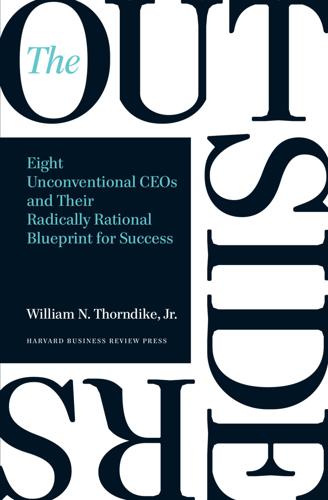
The Outsiders: Eight Unconventional CEOs and Their Radically Rational Blueprint for Success
by
William Thorndike
Published 14 Sep 2012
This single-minded cash focus was the foundation of their iconoclasm, and it invariably led to a laser-like focus on a few select variables that shaped each firm’s strategy, usually in entirely different directions from those of industry peers. For Henry Singleton in the 1970s and 1980s, it was stock buybacks; for John Malone, it was the relentless pursuit of cable subscribers; for Bill Anders, it was divesting noncore businesses; for Warren Buffett, it was the generation and deployment of insurance float. At the core of their shared worldview was the belief that the primary goal for any CEO was to optimize long-term value per share, not organizational growth. This may seem like an obvious objective; however, in American business, there is a deeply ingrained urge to get bigger. Larger companies get more attention in the press; the executives of those companies tend to earn higher salaries and are more likely to be asked to join prestigious boards and clubs.
…
The right capital allocation decision varies depending on the situation at any given point in time. This is why Henry Singleton believed flexibility was so essential. As a group, these CEOs faced the inherent uncertainty of the business world with a patient, rational, pragmatic opportunism, not a detailed set of strategic plans. TABLE 9-1 A shared worldview Their specific actions stemmed from a broader, shared mindset and added up to nothing less than a new model for CEO success, one centered on the optimal management of firm resources. Although the outsider CEOs were an extraordinarily talented group, their advantage relative to their peers was one of temperament, not intellect.

The Death of Truth: Notes on Falsehood in the Age of Trump
by
Michiko Kakutani
Published 17 Jul 2018
A 2017 Harvard study of more than 1.25 million stories (published online between April 1, 2015, and Election Day in November 2016) concluded that pro-Trump audiences relied heavily on this “insulated knowledge community,” which uses “social media as a backbone to transmit a hyper-partisan perspective to the world” and reinforces users’ shared worldview while poisoning them against mainstream journalism that might challenge their preconceptions. The result: an environment in which the president can allude to a terrorist event in Sweden that never happened, or a presidential adviser can reference a nonexistent “Bowling Green massacre.” * * * — With tribal politics increasingly dominating Republican and Democratic politics, candidates scramble to lock down their party’s base during the primary process.
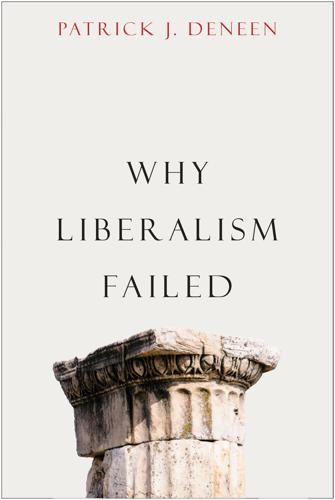
Why Liberalism Failed
by
Patrick J. Deneen
Published 9 Jan 2018
Given the extent to which this basic divide shapes the outlooks of nearly every politically aware person living in an advanced liberal society today, it seems almost unthinkable to suggest that it is far less than it seems—and indeed that the apparent unbridgeability of the chasm separating the two sides merely masks a more fundamental, shared worldview. The project of advancing the liberal order takes the superficial form of a battle between seemingly intractable foes, and the energy and acrimony of that contest shrouds a deeper cooperation that ends up advancing liberalism as a whole. The modern American landscape is occupied by two parties locked in permanent battle.

Set Boundaries, Find Peace: A Guide to Reclaiming Yourself
by
Nedra Glover Tawwab
Published 16 Mar 2021
When couples become parents, their relationship is less romantic, and they become more distant and businesslike with each other as they attend to their kids. Mundane basics like keeping kids fed, bathed, and clothed take energy, time, and resolve. In an effort to keep the family running smoothly, parents discuss carpool pickups and grocery runs instead of sharing worldviews or their thoughts on presidential elections. Questions about their day are replaced with questions about whether the diaper looks full. These changes can be more profound than people realize. Fundamental identities may shift from wife to mother or from lovers to parents. Beyond sexual intimacy, new parents tend to stop saying and doing the little things that please their spouses.

The Soul of Wealth
by
Daniel Crosby
Published 19 Sep 2024
There are hundreds of varieties of belief and non-belief, and not one of them sums anywhere close to claiming a majority of the global population as adherents. In a very real sense, whatever you believe or don’t believe, most other people disagree with you! But if we delve beyond this superficial and cynical perspective, we uncover a surprising amount of common ground rather than disagreement in our shared worldviews. Ideas like compassion, kindness, justice, integrity, and nonviolence are shared by most cultures and creeds, although their expressions of these tenets come from different philosophical and scriptural texts. And one such cross-cultural truism is the paradox that giving is the path to greater abundance.
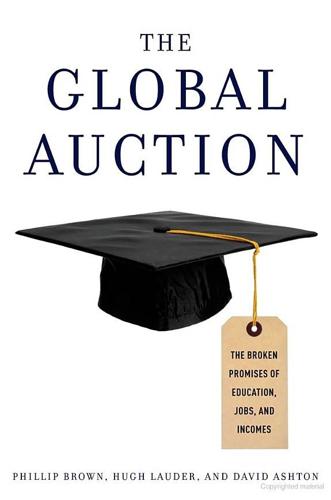
The Global Auction: The Broken Promises of Education, Jobs, and Incomes
by
Phillip Brown
,
Hugh Lauder
and
David Ashton
Published 3 Nov 2010
Being middle class is not only to stand somewhere between the rich and poor but is also defined by occupation linked to a lifestyle package, including a decent salary, career prospects, and a comfortable standard of living. There is little sense of a relationship between people in different social classes or between those in the same class living in different countries. It is far removed for Karl Marx’s idea of a “class in itself ” let alone a “class for itself ” sharing worldviews with political significance. To date, in most of the studies of the global middle class, it means little more than a growing class of consumers who offer new market opportunities to Western companies. The connection between the middle classes in developed and emerging economies hardly figures in their accounts because the American middle class is part of the global rich.
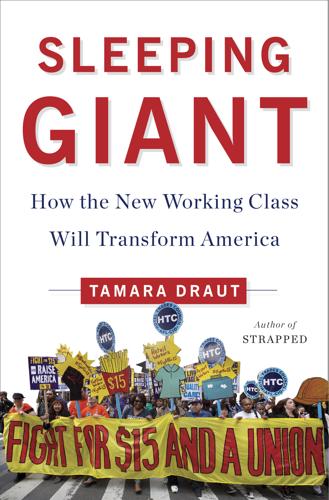
Sleeping Giant: How the New Working Class Will Transform America
by
Tamara Draut
Published 4 Apr 2016
But the day after the training, he called Návar to let him know that the members loved it, and were “pissed” at what they had learned. Návar is doing good old-fashioned consciousness-raising, and for the progressive movement, the loss of unions playing this role is a severe blow to building the kind of shared worldview among the working class critical for rebuilding political power. And that kind of work is gaining more traction across the labor movement. In February 2015, the AFL-CIO launched a Labor Commission on Racial and Economic Justice. Carmen Berkley, director of Civil, Human and Women’s Rights at the AFL-CIO, is leading the initiative, which has the full participation of the AFL-CIO’s Executive Council.
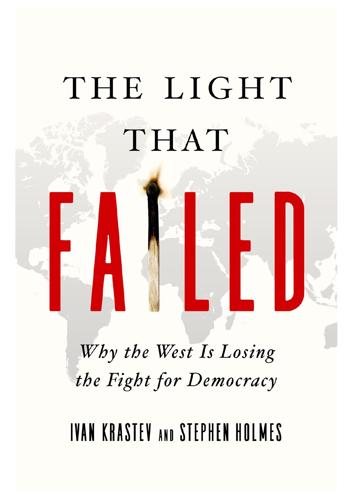
The Light That Failed: A Reckoning
by
Ivan Krastev
and
Stephen Holmes
Published 31 Oct 2019
Beyond these commonalities, Putin and Xi have no shared conception of what a good society looks like. Their actions are driven by national interest and national dreams, shaped by pride and resentment at the humiliations inflicted by Western hands, rather than by a universally exportable ideology defining a shared world-view. And while both Chinese and Russian leaders openly argue that Western-style liberalism would not suit their societies, they have now become confident (or overconfident) enough to pretend that Western liberalism has failed just as humiliatingly as communism failed three decades ago. To say that the rise of China marks the end of the Age of Imitation is to say that there will be no return to a global ideological confrontation between two great powers each imposing its social and political model on a group of vassal states and trying to persuade peoples everywhere to adopt its own goals, objectives and vision of mankind’s future.
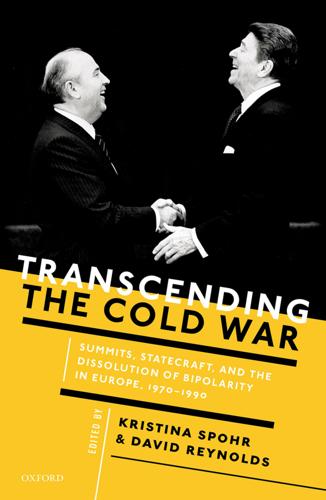
Transcending the Cold War: Summits, Statecraft, and the Dissolution of Bipolarity in Europe, 1970–1990
by
Kristina Spohr
and
David Reynolds
Published 24 Aug 2016
Both President Richard Nixon and his National Security Adviser Henry Kissinger were convinced that the United States had to end its post-Korean War policy of treating ‘Red China’ as a pariah state. ‘We simply cannot afford to leave China outside the family of nations’, Nixon insisted in 1967. ‘Communist China is a major fact of international life’, declared Kissinger the following year; he visualized the world moving from a bipolar era to one of multipolarity.9 This shared worldview prompted their opening to China in 1971–2; though tactical calculations about pressing the Soviets to the negotiating table also played a part. At the practical level, Kissinger acted as the secret go-between to set up the unprecedented meeting between the American and Chinese leaders in 1972.

Doppelganger: A Trip Into the Mirror World
by
Naomi Klein
Published 11 Sep 2023
(The grift goes back to the original paper by Wakefield: when he published it, he did not disclose that his research had received partial funding from a grant secured by Richard Barr, a lawyer who represented people alleging harms from the MMR vaccine, or that Wakefield himself had applied for a patent for a different vaccine and thus stood to potentially profit from the discrediting of the MMR vaccine.) In this convergence of worlds, we can see more than a shared infrastructure of misinformation: there is also a shared worldview, a shared mindset, a shared way of seeing people as either normal or deviant, pure or tainted, successes or failures. And even, as in all doppelganger stories, real or impostors. “Boom—the soul’s gone from his eyes.” That’s how Jenny McCarthy described the effect of a vaccine on her autistic son.
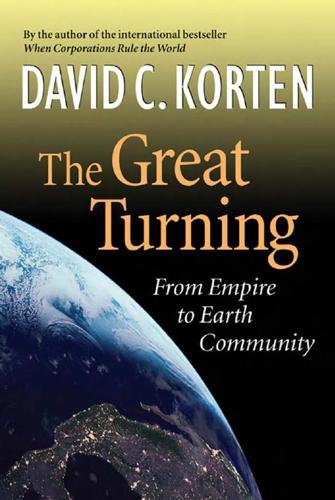
The Great Turning: From Empire to Earth Community
by
David C. Korten
Published 1 Jan 2001
All through history, people thought the way they saw the world was the way the world really was — in other words, they saw their worldview as the true worldview and all others as mistaken and therefore false.4 In our first encounters with people from different cultures, we are likely The Opportunity 77 to experience them as weird, difficult to understand, and possibly dangerous. Through extended intercultural experience, however, we come to see the deeper truth of culture as an organizing construct that defines a shared worldview essential to social coherence. Coming to understand the nature of culture is the essence of the critical transition from Socialized Consciousness to Cultural Consciousness described in chapter 2. The spreading awakening of Cultural Consciousness is of particular importance to us in this time of rapid change in the human circumstance.

A Modern History of Hong Kong: 1841-1997
by
Steve Tsang
Published 14 Aug 2007
It led to the rise of a people that remains quintessentially Chinese and yet share a way of life, core values and an outlook that resemble at least as much, if not more, that of the average New Yorker or Londoner, rather than that of their compatriots in China. A modern history of Hong Kong must therefore address how the residents of Hong Kong came of age as a people with a common identity and shared worldview. The people of Hong Kong is also by all conventional measures in political science a population which, though ready for democracy, has not vigorously pushed for and built one. This is just one of the various paradoxes or ironies t h a t m a r ke d H o n g Ko n g u n d e r B r i t i s h r u l e a n d d e s e r ve s a n impassioned examination and explanation.
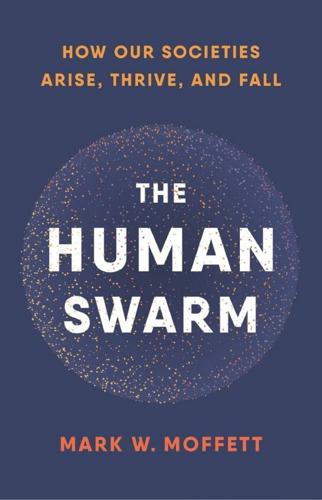
The Human Swarm: How Our Societies Arise, Thrive, and Fall
by
Mark W. Moffett
Published 31 Mar 2019
Sure, we might not have completely trusted any new kids at first, but given satisfactory appearance (the jersey), and behavior (including how they got that shirt), they would likely have been quickly identified as part of the group even by the players who didn’t know them. As for societies, markers add up to an indelible awareness of who we are, yoking people who haven’t met to a shared worldview even when those traits do not require our attention. During the average moment, our markers are so familiar and expected that we notice them no more than we see the sky’s precise shade of blue. Yet we hunger for them when they are absent. This is why, when starved for others “like us” on a trip abroad, we seek out a bar, restaurant, or hangout of people from our nation, and greet the expatriates there, somehow familiar though unknown to us, as old friends.
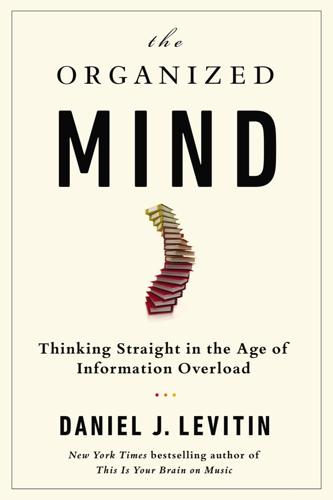
The Organized Mind: Thinking Straight in the Age of Information Overload
by
Daniel J. Levitin
Published 18 Aug 2014
The philosopher John Searle says the mechanism by which indirect speech acts work is that they invoke in both the speaker and the hearer a shared representation of the world; they rely on shared background information that is both linguistic and social. By appealing to their shared knowledge, the speaker and listener are creating a pact and affirming their shared worldview. Searle asks us to consider another type of case with two speakers, A and B. A: Let’s go to the movies tonight. B: I have to study for an exam tonight. Speaker A is not making an implicature—it can be taken at face value as a direct request, as marked by the use of let’s. But Speaker B’s reply is clearly indirect.

Austerity Britain: 1945-51
by
David Kynaston
Published 12 May 2008
The images from the male version remain particularly strong – the teachers (often Oxbridge-educated) in their long black gowns, the boys in their caps and blazers, the undeviating rigour of the whole performance – but possibly the best account we have is of Stockport High School for Girls, which the daughter of an engineering draughtsman, Joan Rowlands (later Bakewell), left in 1951 after seven moulding years: I was overwhelmed by a body of women resolved to shape and instruct me in their shared world-view. They were a cohort of the army of self-improvement, steeped in the same entrenched, spinsterly values of learning, duty and obedience, tempered with a little laughter when exams weren’t too pressing. The school motto set the high-minded tone: Self-reverence, self-knowledge, self-control, These three alone lead life to sovereign power

The 9/11 Wars
by
Jason Burke
Published 1 Sep 2011
What appears clear, however, is that, though American decision-makers undoubtedly recognized the threat bin Laden and his associates posed to US and other nations’ interests, certainly from 1998 onwards, they simply did not have the mental, legal, technical and cultural equipment to formulate and execute an effective policy to counter that threat.17 One reason for this was the lack of a legal framework to deal with an amorphous, dynamic and fragmented movement based more on personal relations and a shared worldview than on formal membership of an organization. So when in 2001 the perpetrators of the 1998 embassy bombings went on trial in New York, al-Qaeda was represented in the courtroom as a classic hierarchical terrorist group. Prosecutors and investigators were constrained both by their training and the legal tools at their disposal to fit this radically new phenomenon into a pre-existing schema, deploying laws designed to fight serious crime in order to obtain convictions.